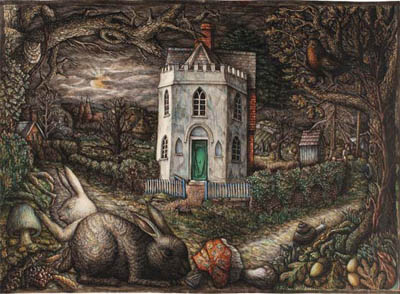|
Robert Wever
Robert Wever was an English poet and dramatist of the sixteenth century (''floruit'' c. 1550) about whom little biographical information seems to have survived. His name is often given as Richard Wever or simply R. Wever. ''An Enterlude called lusty Juventus'', an Entr'acte, interlude, attributed to him, was published in 1565. The poem ''In Youth is Pleasure'' (In a herber green asleep whereas I lay...), is a popular and remembered anthology piece, has been several times set to music, and supplied the writer and painter Denton Welch with the title of his In Youth is Pleasure, second novel. References * External links ''Lusty Juventus'' online text 16th-century births 16th-century deaths English male poets {{England-poet-stub ... [...More Info...] [...Related Items...] OR: [Wikipedia] [Google] [Baidu] |
Floruit
''Floruit'' (; abbreviated fl. or occasionally flor.; from Latin for "they flourished") denotes a date or period during which a person was known to have been alive or active. In English, the unabbreviated word may also be used as a noun indicating the time when someone flourished. Etymology and use la, flōruit is the third-person singular perfect active indicative of the Latin verb ', ' "to bloom, flower, or flourish", from the noun ', ', "flower". Broadly, the term is employed in reference to the peak of activity for a person or movement. More specifically, it often is used in genealogy and historical writing when a person's birth or death dates are unknown, but some other evidence exists that indicates when they were alive. For example, if there are wills attested by John Jones in 1204, and 1229, and a record of his marriage in 1197, a record concerning him might be written as "John Jones (fl. 1197–1229)". The term is often used in art history when dating the career ... [...More Info...] [...Related Items...] OR: [Wikipedia] [Google] [Baidu] |
Entr'acte
(or ', ;Since 1932–35 the French Academy recommends this spelling, with no apostrophe, so historical, ceremonial and traditional uses (such as the 1924 René Clair film title) are still spelled ''Entr'acte''. German: ' and ', Italian: ''intermezzo'', Spanish: ') means "between the acts". It can mean a pause between two parts of a stage production, synonymous to an intermission (this is nowadays the more common meaning in French), but it more often (in English) indicates a piece of music performed between acts of a theatrical production. In the case of stage musicals, the ''entr'acte'' serves as the overture of act 2 (and sometimes acts 3 and 4, as in ''Carmen''). In films that were meant to be shown with an intermission, there was frequently a specially recorded ''entr'acte'' on the soundtrack between the first and second half of the film, although this practice eventually died out. Origin Originally ''entr'actes'' resulted from stage curtains being closed for set or costume ... [...More Info...] [...Related Items...] OR: [Wikipedia] [Google] [Baidu] |
Anthology
In book publishing, an anthology is a collection of literary works chosen by the compiler; it may be a collection of plays, poems, short stories, songs or excerpts by different authors. In genre fiction, the term ''anthology'' typically categorizes collections of shorter works, such as short stories and short novels, by different authors, each featuring unrelated casts of characters and settings, and usually collected into a single volume for publication. Alternatively, it can also be a collection of selected writings (short stories, poems etc.) by one author. Complete collections of works are often called "complete works" or "" (Latin equivalent). Etymology The word entered the English language in the 17th century, from the Greek word, ἀνθολογία (''anthologic'', literally "a collection of blossoms", from , ''ánthos'', flower), a reference to one of the earliest known anthologies, the ''Garland'' (, ''stéphanos''), the introduction to which compares each of its ... [...More Info...] [...Related Items...] OR: [Wikipedia] [Google] [Baidu] |
Denton Welch
Maurice Denton Welch (29 March 1915 – 30 December 1948) was a British writer and painter, admired for his vivid prose and precise descriptions. Life Welch was born in Shanghai, China, to Arthur Joseph Welch, a wealthy British rubber merchant, and his American wife of Christian Science faith, Rosalind Bassett from New Bedford, Massachusetts. The youngest of four sons, Welch, was sent to a boarding school at the age of 11, after his mother died from wasting kidney disease. After a brief time at prep school in London, Welch was sent to Repton, where he was a contemporary of the writer Roald Dahl and actor Geoffrey Lumsden. By his and others' accounts, his time there was miserable, and he ran away prior to his last term. After leaving Repton, he studied art at Goldsmiths' in London with the intention of becoming a painter. Welch spent part of his pre-school childhood in China, and returned for a longer spell after he left Repton. He recorded this episode in his fictionalised auto ... [...More Info...] [...Related Items...] OR: [Wikipedia] [Google] [Baidu] |

